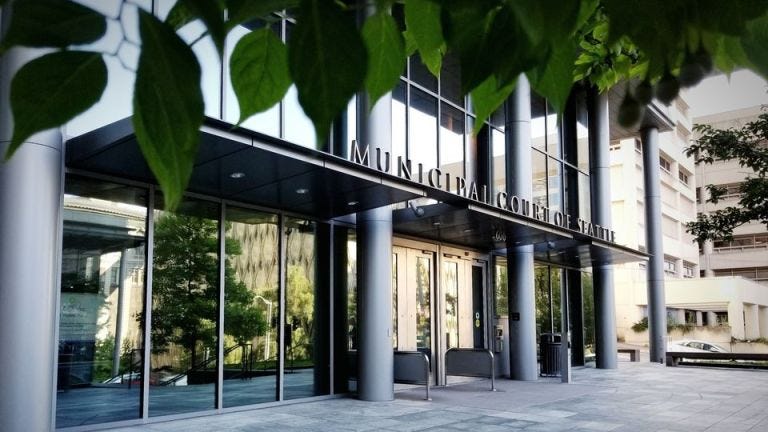Ann Davison's New "Drug Prosecution Alternative" Is Just the Community Court She Ended Two Years Ago
By Erica C. Barnett
City Attorney Ann Davison, who unilaterally ended the city's therapeutic community court two years ago, announced yesterday that she's rolling out a new option for people accused of drug misdemeanors, such as the recently adopted laws against using or possessing drugs in public spaces. The office announced the new "drug prosecution alternative" in a press release after the Seattle Times posted a story about it yesterday morning.
According to the announcement, "The Drug Prosecution Alternative will provide an incentive for defendants arrested for drug use and possession to connect with services and commit no new law violations to have their drug cases dismissed."
The new alternative will include a "warm hand-off" from the court to the city's Community Resource Center, where they will be able to access resources directly. After that, if they don't violate the law for 60 days, their charges will be dismissed. This process will, in theory, free up the city attorney's office to focus on other cases instead of going through a discovery process for every drug case they pursue.
If most of that sounds awfully familiar, it should. The structure of the new "drug prosecution alternative" is identical to the community court Davison shut down two years ago as the fentanyl epidemic raged. Put another way, what Davison is proposing is effectively a restoration of the old community court.
When Davison's office announced it was ending community court two years ago, they derided the court as as ineffective and soft, in part, because defendants retained their right to trial and were not required to do community services as a condition for receiving services.
At the time, the office called this work requirement a non-negotiable "central component" of community court. "Community service was an essential and fundamental component of the original conception of Community Court, then-criminal division chief Natalie Walton-Anderson (who is now Mayor Bruce Harrell's public safety director) wrote.
The new drug prosecution alternative has no community service requirements. Nor does it require defendants to give up their right to trial.
Municipal Court Judge Damon Shadid, who ran the old community court, wrote a proposal for a revamped version of community court back in 2023 in response to Davison's concerns. Among other concessions to Davison, Shadid proposed eliminating a "level 1" track that allowed people to attend a life-skills class and get their charges dismissed and starting defendants at Level 2—going to an appointment at the service center.
Davison's new proposal is substantively identical to what Shadid recommended in 2023.
Shadid said he was glad that Davison had come around on community court, retaining the elements he said were essential to its success when he tried to save a version of the court two years ago.
"I am pleased that the city attorney has adopted the Seattle Municipal Court Community Court structure for Drug Diversion Court," Shadid said. "Ensuring defendants don't have to give up rights to receive services allows us to start connecting defendants to services on their first court appearance. "
Advocates generally agree that existing services are inadequate, particularly for unhoused people with severe substance use disorders.
Although the new adjudication process will be almost identical to the old community court, some of the details are new. The court will require participants to go through an initial urinalysis and a substance use disorder assessment, which will likely require the city to pay for a new staffer to do this arguably unnecessary task. (Assessments determine the severity of a person's substance use disorder; someone arrested for using fentanyl on a sidewalk probably doesn't need a test to know that he's using drugs problematically.)
According to Tim Robinson, a spokesman for the City Attorney's Office, "Substance abuse assessment assists in determining the level of care necessary." As for the new drug test requirement, Robinson said, "a clean UA can lead to an expedited successful completion in the program. A dirty UA would not provide that same expedited pathway, but the individual could end up successfully completing the program and having their charges dropped."
The new version of community court also gives the city attorney, not the court, sole authority to determine who is and isn't eligible—another concession Shadid included in his2023 proposal. Davison's office said they didn't plan to apply any specific criteria to cases, but would instead decide on a "case by case" basis. "It is a complex endeavor," Robinson said.
Previously, Davison excluded everyone on her list of frequent misdemeanor offenders (so-called "high utilizers") from community court. This was problematic, even arbitrary, at the time; it may be even more so now that drug use is itself a misdemeanor, because the rule would explicitly exclude frequent drug offenders from services designed to help them out of addiction.






I liked what Senator Everett Dirksen one time when he changed his mind
“At least , I got a mind to change!”